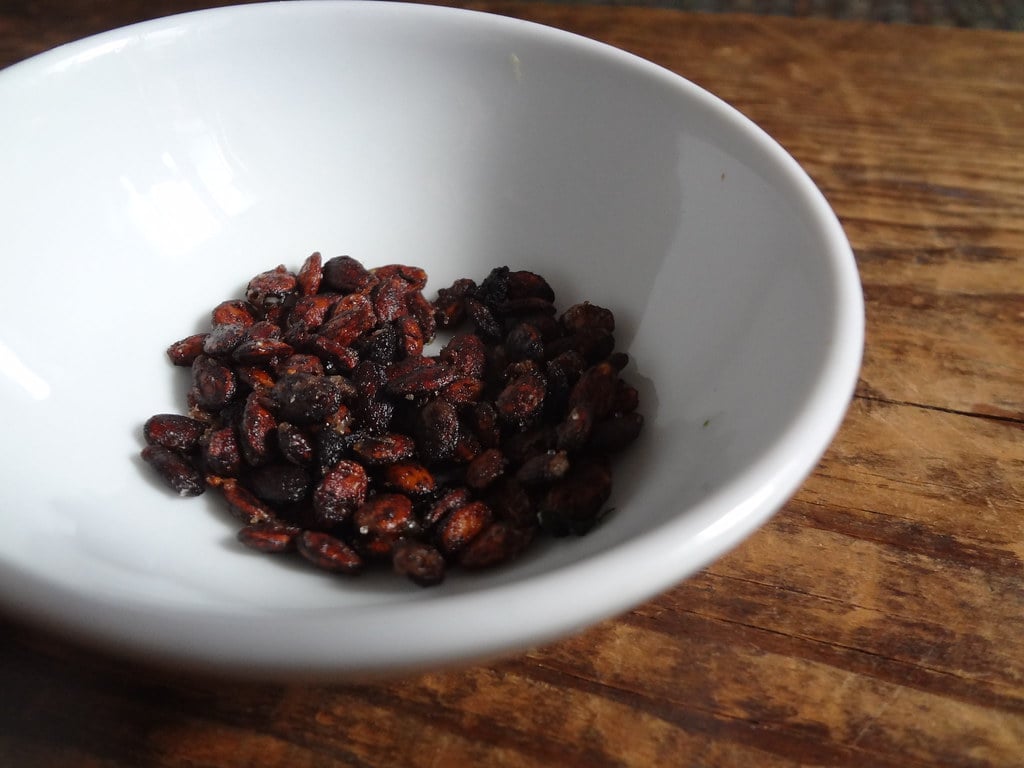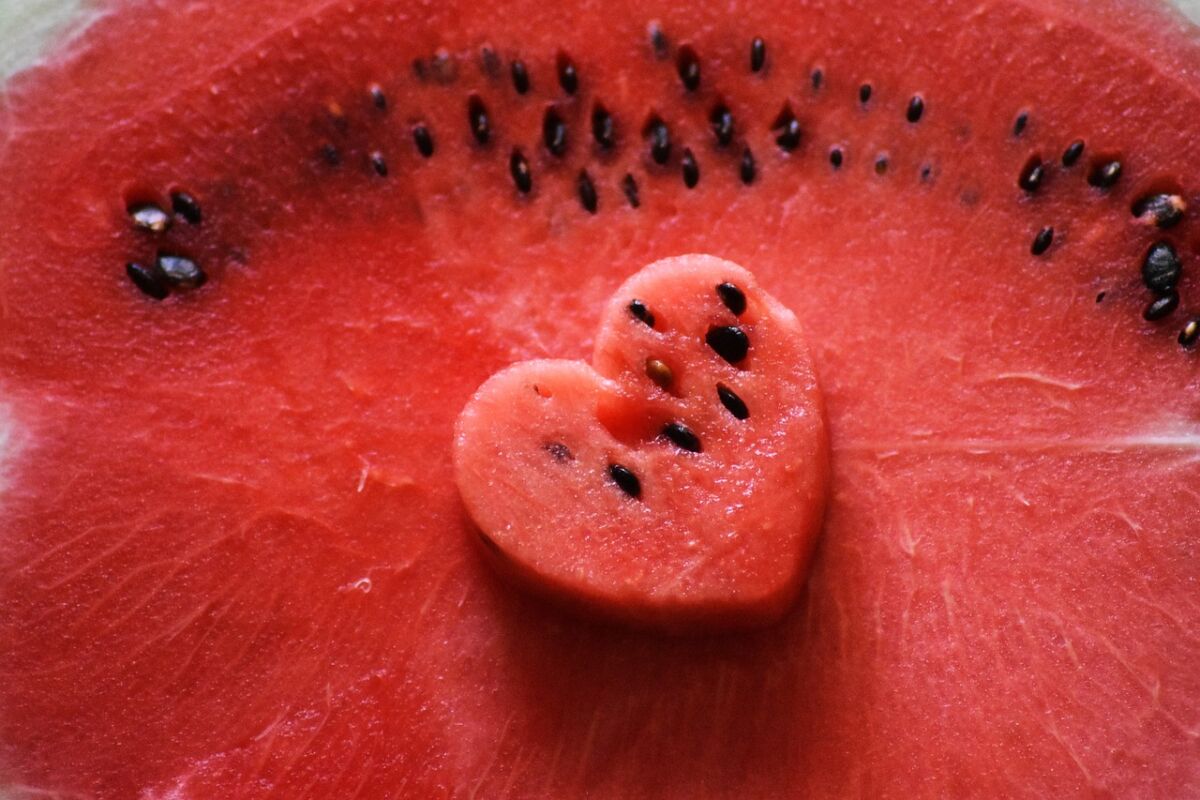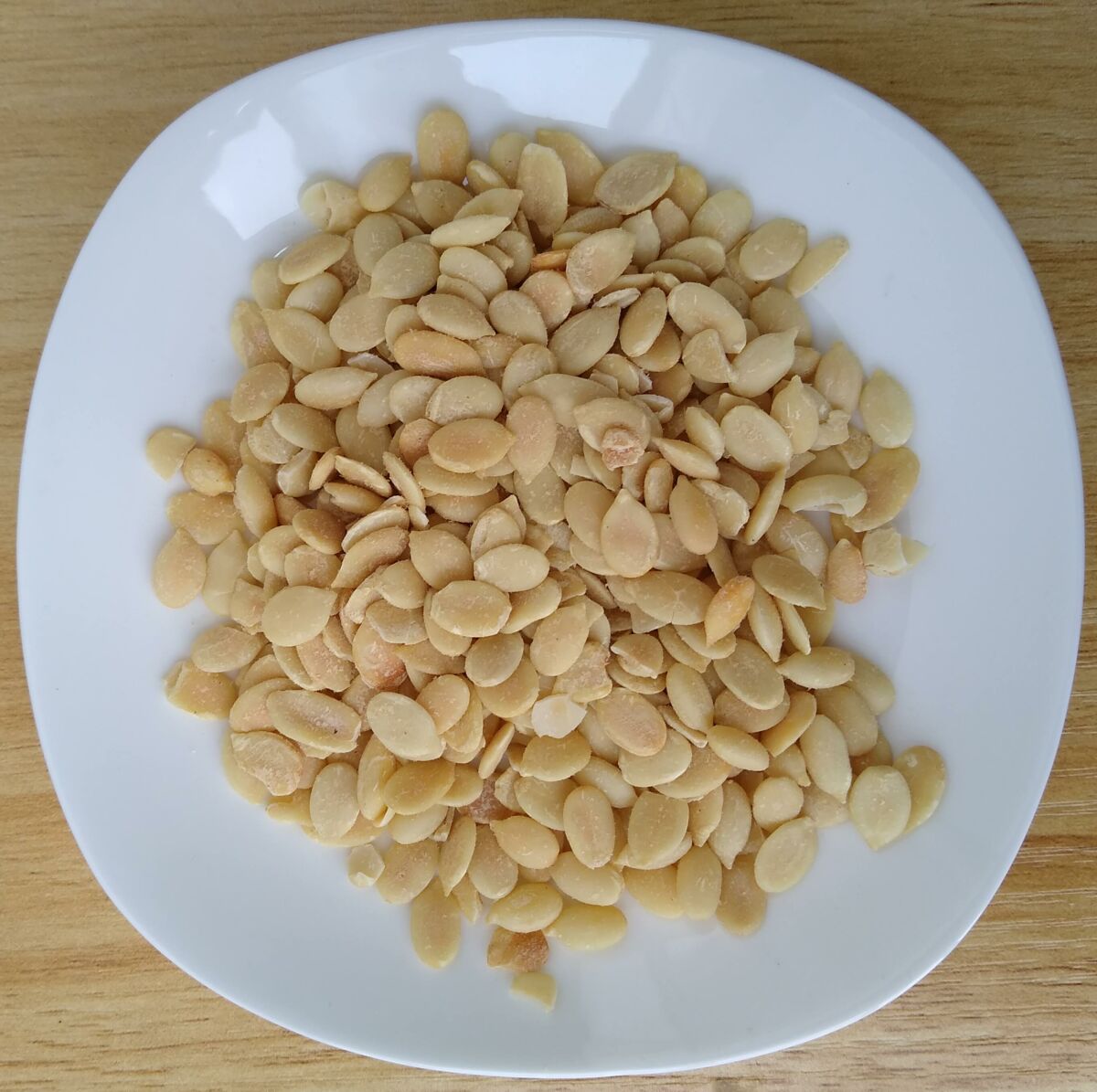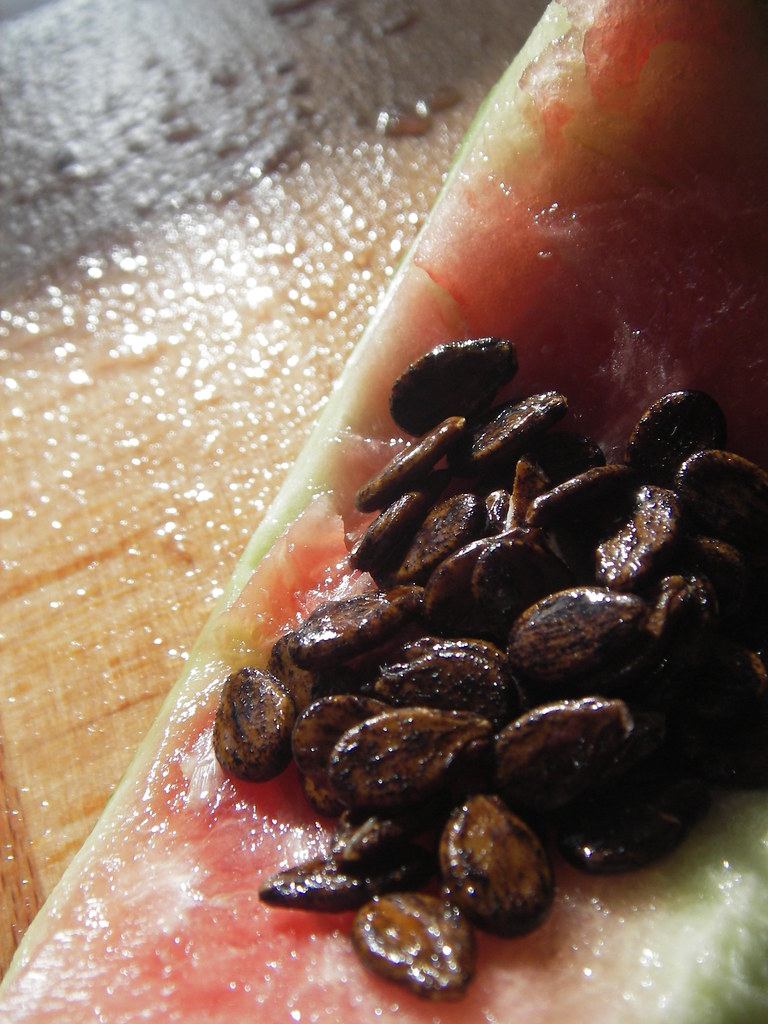Watermelon, a popular summer fruit, is often enjoyed for its juicy sweetness and refreshing quality. However, one question many people have is whether or not they can eat the seeds that fill this delectable treat. The answer is simple: yes, you can eat watermelon seeds. In fact, these seeds can even offer some health benefits.

Both black and white watermelon seeds found inside the fruit are safe for consumption. While they may not be the first choice for a snack, they are packed with valuable nutrients. Watermelon seeds are rich in magnesium, protein, and essential fatty acids, providing a healthy alternative to other popular snack options.
Can You Eat Watermelon Seeds
Safe to Eat
Yes, it is absolutely safe to eat watermelon seeds. They pose no harm when consumed as part of a balanced diet. In fact, watermelon seeds are great sources of minerals, protein, and essential fatty acids. So, not only are they safe, but they also come with their own set of health benefits.
However, if you prefer to chew the seeds before swallowing, that’s perfectly fine too. Chewing will help your body better absorb the nutrients from the seeds.
White Seeds Vs. Black Seeds
There are usually two types of seeds found in watermelons: white and black. Both of these varieties are safe to eat, though their nutritional content may differ slightly.
The white seeds are commonly referred to as “immature seeds,” as they haven’t fully matured yet. Due to their size and texture, they are easier to chew and digest compared to black seeds. As for the black seeds, they are fully matured and contain more fiber than their counterparts.
In conclusion, white and black watermelon seeds are safe to consume and offer various health benefits. Feel free to enjoy them as a snack or a nutritious addition to your meals.
Health Benefits of Watermelon Seeds

Nutritional Value
Watermelon seeds are a nutrient-rich snack, boasting an impressive variety of vitamins, minerals, and healthy fats. They are easy to include in your diet, either by roasting them for a crunchy snack or grinding them into flour, which has more protein, iron, and zinc than almond or coconut flour.
Protein and Healthy Fats
Containing omega-3s and polyunsaturated fatty acids, watermelon seeds are a great source of healthy fats that contribute to heart health and other bodily functions. They also provide a significant amount of protein, making them a valuable addition to vegetarian and vegan diets.
Vitamins and Minerals
Watermelon seeds are an excellent source of important minerals like zinc, magnesium, and iron. These minerals are crucial in immune system function, metabolism, and blood pressure regulation.
Fiber and Digestion
Fiber is an important component for maintaining a healthy digestive system. Watermelon seeds are a good source of dietary fiber, which can help improve digestion, prevent constipation, and aid in weight management.
Antioxidants and Immune System
Watermelon seeds contain antioxidants that help protect the body from free radicals and oxidative stress. These, in turn, help support a healthy immune system, reducing the risk of illness and promoting overall health.
Heart Health and Blood Pressure
The magnesium and healthy fats in watermelon seeds have been shown to regulate blood pressure. Consuming watermelon seeds in appropriate amounts may help manage hypertension and promote heart health, especially when roasted without added salt.
You can reap the numerous health benefits they offer by incorporating watermelon seeds into your diet. Whether you choose to roast them or explore products like watermelon seed butter, they are a delicious and nutritious addition to your meals and snacks.
How to Prepare and Eat Watermelon Seeds

Roasting Watermelon Seeds
To roast watermelon seeds, first, rinse and dry the seeds thoroughly. Then, toss them with a small amount of olive oil and spread them on a baking sheet. Preheat your oven to 325°F (163°C) and place the seeds in the oven. Roast the seeds for 15-20 minutes, stirring occasionally, until they are crispy and golden brown. Once done, allow the seeds to cool before enjoying them as a crunchy snack or incorporating them into various dishes.
Sprouted Watermelon Seeds
For a nutrient-rich option, consider sprouting watermelon seeds before roasting them. To do this, soak the seeds in water for about 12 hours. Drain the water and place the seeds in a jar or sprouting container, rinsing and draining them daily for a few days until they sprout. Once the seeds have sprouted, you can roast them as described in the previous section, making them a delicious and healthy snack.
Watermelon Seed Butter
Prepare watermelon seed butter by blending roasted watermelon seeds in a food processor or high-powered blender until they reach a smooth and creamy consistency. You can add a small amount of oil, like coconut or olive oil, to help with blending and sweeten it with honey or maple syrup if desired. Watermelon seed butter can be used as a spread on toast or as a base for smoothies and salad dressings.
Incorporating into Salads and Smoothies
Roasted watermelon seeds make a great addition to salads, providing a satisfying crunch and extra nutritional value. Simply sprinkle the seeds on top of your favorite salad for added texture and flavor. Alternatively, you can blend roasted or sprouted watermelon seeds into your favorite smoothie recipes. They will add a boost of nutrients such as protein, magnesium, and healthy fats without altering the flavor of your drink. Enjoy the numerous benefits of watermelon seeds by incorporating them into your everyday meals.
Tips and Considerations

Digestive Concerns
For those with sensitive digestive systems or conditions like constipation, consuming watermelon seeds in large quantities might cause some discomfort. This is because the seeds contain insoluble fiber, which can lead to bloating or digestive issues in some people. To avoid discomfort, consider gradually incorporating these seeds into your diet or opt for other nutritious snacks.
Variations and Seasonings
Watermelon seeds can be consumed in various ways. One popular method is sprouting and roasting them to create a tasty and nutritious snack. You can experiment with different seasonings to enhance their flavor during the roasting process. Alternatively, watermelon seed butter can be prepared by blending the seeds into a smooth consistency, making it a versatile spread for toast, crackers, or smoothies.
Food Waste and Sustainability
Eating watermelon seeds is an excellent way to reduce food waste and promote sustainability. By consuming these seeds, you’re using a component that might otherwise be discarded. In addition to their nutritional benefits, incorporating watermelon seeds into your diet helps to minimize waste and support eco-friendly practices.